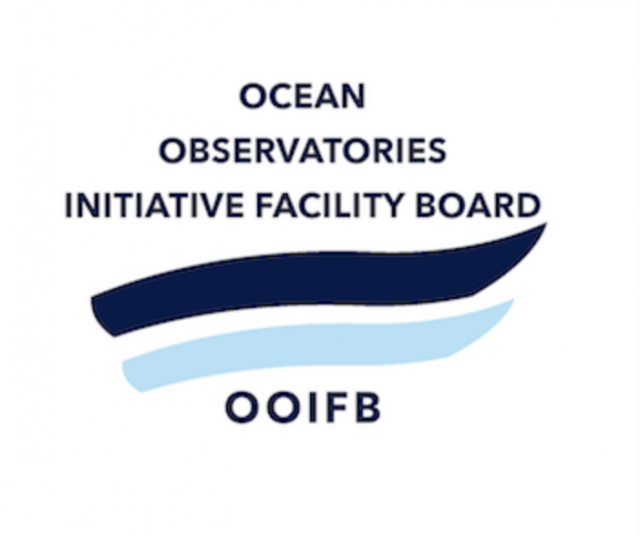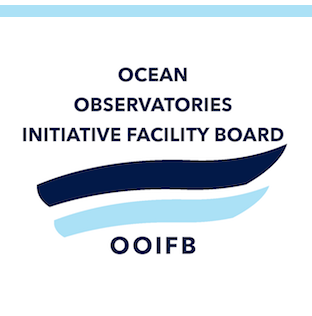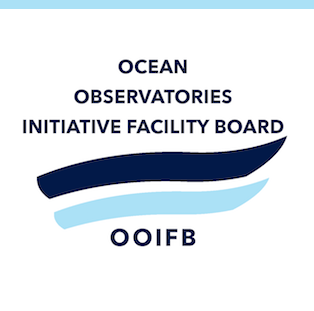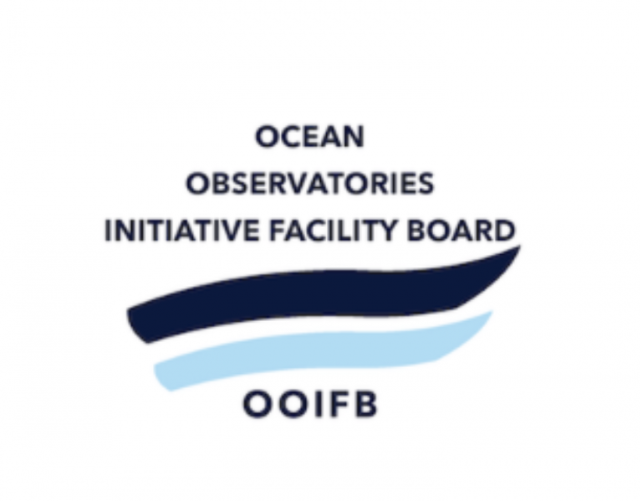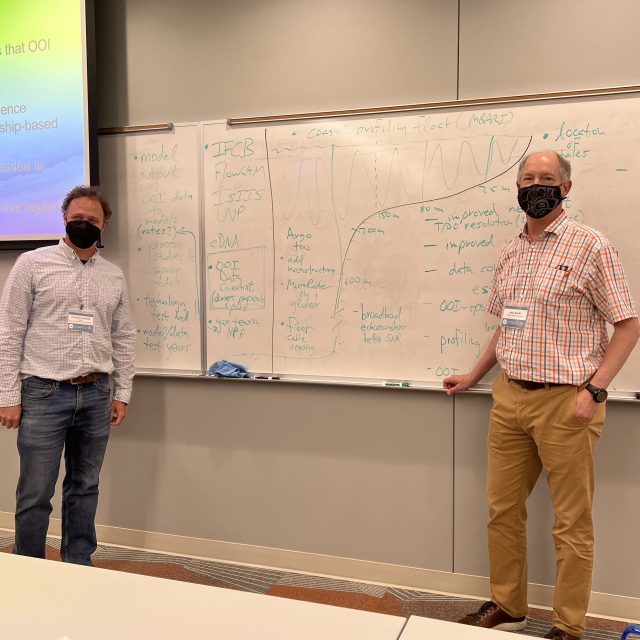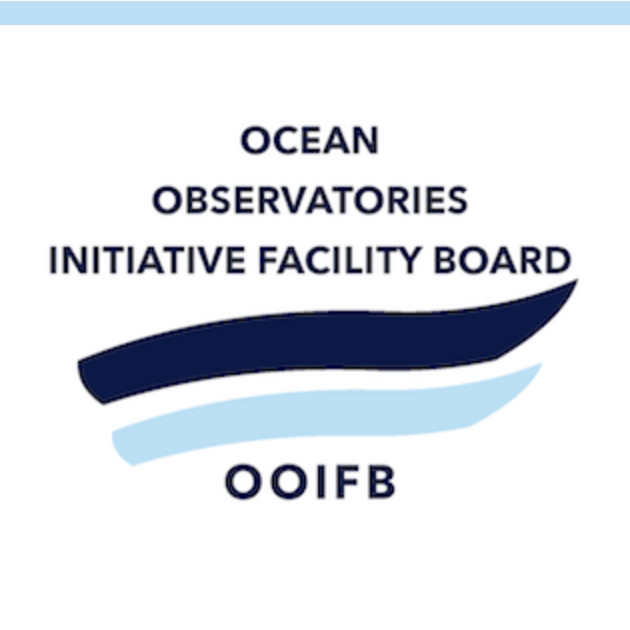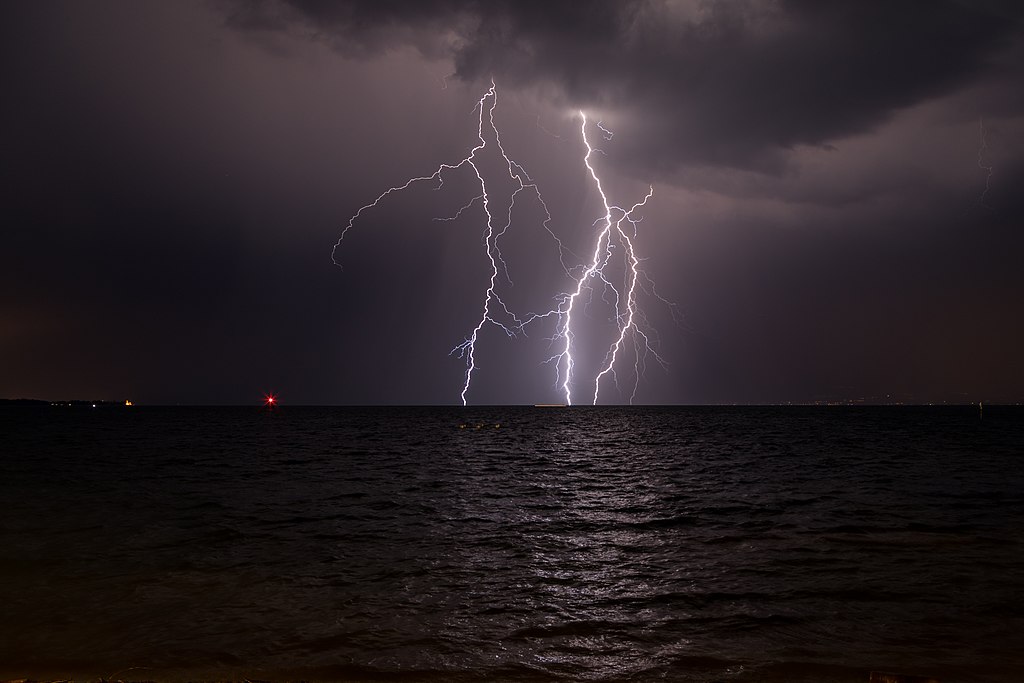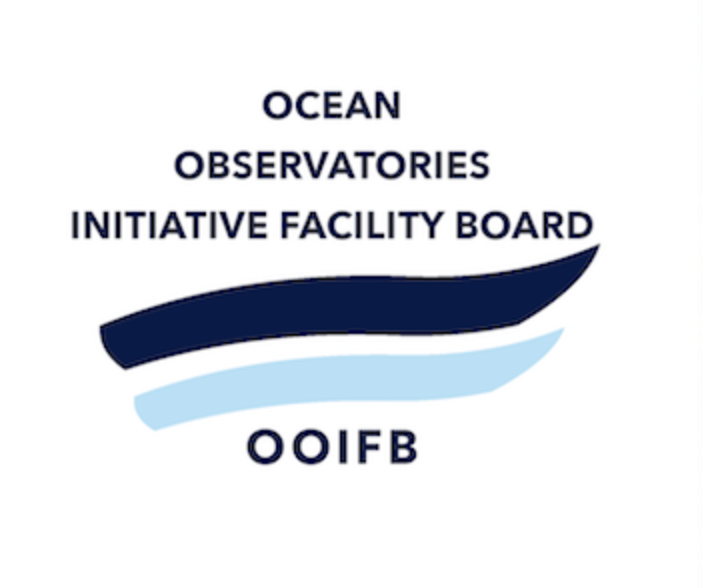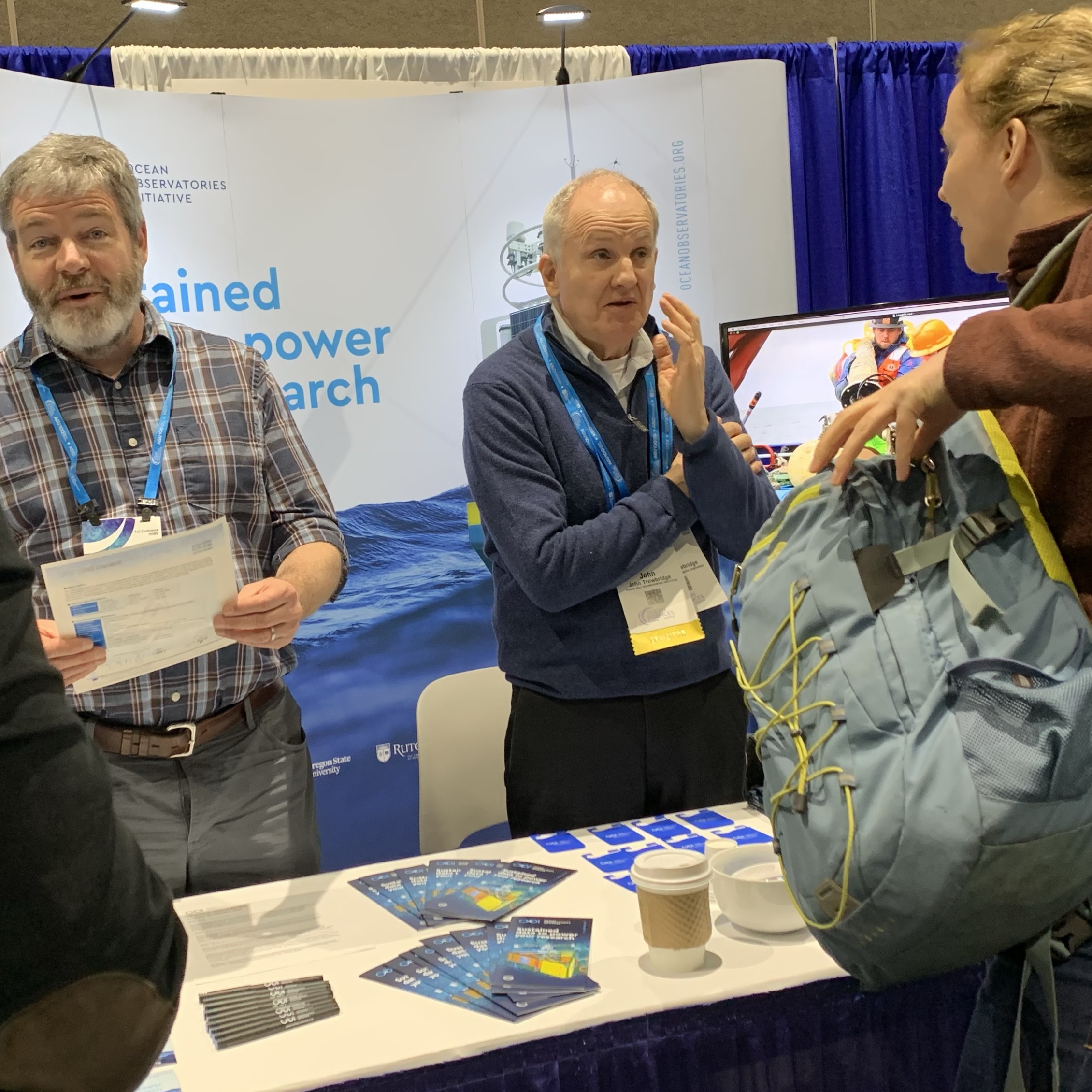Posts Tagged ‘OOIFB’
Call for Applications for OOIFB
~ Call for Applications ~
OOI Facility Board
Application Deadline: August 6, 2023
The Ocean Observatories Initiative Facility Board (OOIFB) provides independent input and guidance regarding the management and operation of the National Science Foundation-funded Ocean Observatories Initiative (OOI). The OOIFB works to expand scientific and public awareness of OOI, and ensure that the oceanographic community is kept informed of developments of OOI.
The responsibilities of the OOIFB may include, but are not limited to, the following:
- Serving as the prime scientific and technical conduit between the oceanographic community and NSF regarding OOI.
- Examining the accomplishments and work flow of the OOI Operator, in order to provide feedback regarding the OOI Annual Work Plans (AWPs)
- Via workshops, community meetings, and/or other mechanisms, stimulate and engage the user community in order to keep the accomplishments of the OOI at the cutting edge of scientific inquiry and technological innovation.
- Developing and implementing strategies to expand scientific and public awareness of the unique scientific and technological opportunities of the OOI.
- Helping to identify collaborative relationships with potential governmental, industrial, educational, and international partners in the OOI, where appropriate.
- Ensure fair and consistent access to the OOI by all sectors of the user community.
Applications should be submitted to Annette DeSilva at the OOIFB Administrative Support Office, and must include a letter of interest and a CV. The statement of interest should highlight the applicant’s experience using observatory data and have fostered an environment of respect in their research endeavors.
Please note, applications cannot be accepted from individuals affiliated with the OOI Program Facility institutions (Woods Hole Oceanographic Institution, Oregon State University, and the University of Washington), individuals under contract with the OOI Program, and individuals from institutions already represented on the OOIFB (the current list of OOIFB members is available HERE).
Applications are due by August 6, 2023. Applications will be reviewed by the OOIFB, who will give due consideration to the qualifications of applicants, as well as the maintenance of gender, career level, discipline, and regional balance on the OOIFB. For more information about OOIFB and its activities, please visit the website or contact Kendra Daly, OOIFB Chair.
OOI Bio-Optics Sensor Summer School
Bio-Optics Sensor Summer School Applications Open
Are you interested in using OOI’s optical attenuation and absorption data in your research? Have you ever faced challenges finding and interpreting this type of data? If so, we hope you will consider applying for the 2023 OOI Bio-Optics Sensor Summer School.
The Ocean Observatories Initiative Facility Board (OOIFB) will host the summer school on July 17-21, 2023 on the campus of Oregon State University in Corvallis, OR. The course will focus on learning how to analyze and interpret the Sea-Bird AC-S measurements of optical attenuation and absorption. The AC-S is a hyperspectral instrument used to characterize the way seawater absorbs and scatters light and total scattering can be derived for living and detrital particles in the ocean. The OOI Program deploys the Sea-Bird AC-S on most of the OOI platforms, including coastal, cabled, and high latitude moorings.
Marine phytoplankton play an important role in ocean ecology and global biogeochemical cycles. The optical attenuation and absorption data from the AC-S provides information on the relative biomass of different phytoplankton size classes and phytoplankton functional types. In addition, other biogeochemical proxies, such as particulate organic carbon, may be estimated. The AC-S data also may be used to validate remote sensing measurements. These observations will be useful in addressing science questions covered by several OOI research themes including:
- Climate Variability, Ocean Circulation, and Ecosystems.
- Coastal Ocean Dynamics and Ecosystems.
- Turbulent Mixing and Biophysical Interactions.
About 25 advanced graduate students, post-doctoral fellows, and early career scientists will be selected as participants for the summer school. Other career level researchers will be considered, based on space availability. Participants should have a general understanding of oceanography/biology. Only applicants from U.S institutions can be considered. Participation will be in-person only and all selected students must be available to attend all days of the course. Funding for reimbursement of travel expenses, accommodations, and meals is offered.
Additional details about the summer school program, as well as a link to the application form are available here.
Please submit your application by the end of the day on February 28, 2023. Selections and notifications will be made in March.
Call for Lightning Talks at OOIFB Town Hall
The Ocean Observatories Initiative Facilities Board (OOIFB) will host a Town Hall at the 2022 Fall AGU Meeting on December 12th from 6:30 pm to 7:30 pm Central Time. The Town Hall will be offered in-person, as well as virtually. The community will have the opportunity to hear the latest information about the OOI Facility Board activities, OOI facility, Pioneer Array relocation plans, and learn about research using OOI data.
The Town Hall will also include a series of lightning presentations where scientists are invited to present one slide in one minute explaining how they have used (or plan to use) freely available observatory data in their respective research. This is your opportunity to highlight your experience with OOI. We hope you will consider presenting a slide in the lightning session.
Time during the Town Hall is limited and we expect to be able to schedule about six lightning talks during the Town Hall. However, all submitted lightning talks will have the opportunity to be presented during the Fall AGU Meeting. The OOIFB has teamed with the OOI booth exhibitor to offer a time slot during the meeting to highlight all of the lightning talks.
Sign-up now to present a lightning talk – If you are using (or plan to use) OOI data and wish to present a lightning talk during the Town Hall, please please apply using the: LIGHTNING TALK FORM by November 21st. From the applications submitted, we will work to select six lightning talks for the Town Hall that can highlight the exciting research that is being done across the entire OOI Facility.
Funding Available for AGU Fall Meeting Registration Fee – Please note, all participants and presenters during the OOIFB Town Hall must be registered for the 2022 AGU Fall Meeting. Funding is available to offset the registration fees for students and early career scientists (ECS) who are presenting a lightning talk. Funding is limited and the first 8 student/ECS applications will be considered for reimbursement. The Lightning Talk application form includes space for requesting registration fee reimbursement.
The workshop is aimed at researchers who are using or are considering using OOI data and/or adding instrumentation to OOI infrastructure and educators at all levels interested in using data from the OOI’s Arrays. We hope to see you at the OOIFB Town Hall!
Event: OOI Facility Board Town Hall
When: Monday, December 12, 2022 from 6:30 pm to 7:30 pm Central Time
Lightning Talks: Apply online here: The form will be open until November 21st.
Where: In person at McCormick Place, Room S106a or Virtual Participation.
The Town Hall agenda and additional details are available here.
Read MoreCall for Applications: OOIFB Board Position
The Ocean Observatories Initiative Facility Board (OOIFB) provides independent input and guidance regarding the management and operation of the National Science Foundation-funded Ocean Observatories Initiative (OOI). The OOIFB works to expand scientific and public awareness of the OOI, and ensure that the oceanographic community is kept informed of developments of the OOI.
The OOIFB is soliciting applications to fill one open membership position. The appointment will fill the remainder of an unexpired term and will be effective starting in October 2022 and run through May 2023. The selected individual will be eligible to serve two additional 3-year terms. The OOIFB holds at least one in-person meeting per year and one web conference each month.
Scientists with experience using scientific observing systems, such as the OOI, are encouraged to apply. In an effort to maintain the expertise and disciplinary depth on the committee, we are particularly interested in applicants with research experience using data from the OOI Global Arrays, Endurance Array, and/or from institutions along the U.S. West Coast. However, all interested applicants will be considered.
The responsibilities of the OOIFB may include, but are not limited to, the following:
- Serving as the prime scientific and technical conduit between the oceanographic community and NSF regarding the OOI.
- Examining the accomplishments and work flow of the OOI Operator, in order to provide feedback regarding the OOI Annual Work Plans (AWPs).
- Via workshops, community meetings, and/or other mechanisms, stimulate and engage the user community in order to keep the accomplishments of the OOI at the cutting edge of scientific inquiry and technological innovation.
- Developing and implementing strategies to expand scientific and public awareness of the unique scientific and technological opportunities of the OOI.
Applications should be submitted to Annette DeSilva, at the OOIFB Administrative Support Office (desilva@ooifb.org), and must include a letter of interest and an academic CV. Applications are due by September 25, 2022. Applications will be reviewed by the OOIFB, who will give due consideration to the qualifications of applicants, as well as the maintenance of gender, career level, discipline, and regional balance on the OOIFB. For more information about OOIFB and its activities, please visit the website:https://ooifb.org or contact Kendra Daly, OOIFB Chair (kdaly@usf.edu).
Recap of Successful NE Pacific Workshop
The Ocean Observatories Initiative Facility (OOIFB) hosted a well-attended three-day workshop (June 7-9), followed by an optional Q&A data workshop on June 10. The workshop explored research opportunities using OOI data and its infrastructure to advance understanding of ocean processes in the NE Pacific. More than 100 people attended the workshop, 70 in-person, in the first such event in two years, and 30 virtual participants.
[media-caption path="/wp-content/uploads/2022/06/20220607_105055-2-scaled.jpg" link="#"]The workshop consisted of a mix of plenaries, breakout groups, posters, and many informal, productive discussions about how to maximize use of OOI data. Photo: Abby Ernest-Beck, URI.[/media-caption]
“Not only was it exciting to be with colleagues after all of this time,” said Kendra Daly, chair of the OOIFB, “the number of new ideas discussed on how to expand use of OOI data and extend partnerships with other observatories in the region was truly invigorating. The workshop laid the groundwork for new ways in which to use OOI data to explore research questions relevant to the NE Pacific.”
The three-day event alternated between plenaries on topics such as the “Warm Blob,” preparing for the next eruption at Axial Seamount, and how OOI data are used in modeling efforts and in the classroom. Lively breakout group sessions covered topics ranging from how to access OOI data, to major scientific questions, to research aimed at specific geographic regions, to potential broader impact initiatives.
The workshop was funded by the National Science Foundation.
For those who missed the workshop, all presentations and posters are available online here. Recordings of the workshop will be available online in the coming weeks.
Read MoreApplications Open for June Northeast Pacific OOIFB Workshop
The Ocean Observatories Initiative Facility Board (OOIFB) will host a workshop focusing on current and future science that can be addressed using data from OOI’s infrastructure in the Northeast Pacific and other regional observatory arrays. The workshop will be held at the OSU Portland Center in Portland, OR on June 7-9, 2022. This workshop was scheduled to be held in 2020, but was postponed due to the COVID-19 pandemic. The OOIFB is hopeful that in June 2022 members of OOI’s community can safely come together for a productive workshop. A hybrid model with in-person along with options for virtual participation is planned.
The workshop is aimed at researchers who are using or are considering using OOI data; resource managers from national, state, and tribal agencies; and educators at all levels interested in using data from the OOI’s Regional Cabled, Coastal Endurance, and Global Station Papa Arrays.
The workshop will inform the research community of the available data and science opportunities offered by the OOI and other observatory arrays located in the Northeast Pacific. An overview of OOI data products, user interfaces, and system features will be provided along with hands-on demonstrations using data access tools. OOI Program Team members and NSF representatives will be on hand to answer questions and provide information on OOI operations.
The workshop will provide a forum to facilitate science collaborations, identify strategies for engaging future users of OOI, and build cross-network collaborations. Community-building and expanding broader impacts will be discussed. Workshop participants will have the opportunity to provide feedback on their experiences in working with the OOI systems and data.
To apply for the workshop, please complete the on-line application form that is available on the workshop web page. Please indicate how you plan to participate in the workshop (in person or virtual) when completing the form. Travel support is available, but limited. Broad representation from institutional, geographic, and disciplinary groups is desired and will be considered in participant selection. The deadline for applications is March 20, 2022.
Additional details about the workshop and agenda are available here.
Call for Lightning Talks at OOIFB Town Hall
The Ocean Observatories Initiative Facilities Board (OOIFB) will host a Town Hall at the 2022 Ocean Sciences Meeting (OSM) on Friday, February 25th from 12:00 pm to 1:00 pm Eastern Time. The meeting will be fully virtual. The community will have the opportunity to hear the latest information about the OOI facility, Pioneer Array relocation plans, early career scientists’ activities, and education updates.
The Town Hall also will include a series of lightning presentations where scientists are invited to present one slide in one minute explaining how they have used (or plan to use) freely available observatory data in their respective research. OOIFB invites all to consider presenting a slide in the lightning session.
Time during the Town Hall is limited and about six lightning talks will be scheduled during the Town Hall. However, all submitted lightning talks will have the opportunity to be presented during the Ocean Sciences Meeting. The OOIFB has teamed with the OOI’s virtual booth team to offer a time slot during the meeting to highlight all of the lightning talks.
Sign-up Now to Present a Lightning Talk – If you are using observatory data and wish to present a lightning talk during the Town Hall, please apply using the: LIGHTNING TALK FORM by February 9th. From the applications submitted, OOIFB will select six lightning talks for the Town Hall that can highlight the exciting research that is being done across the entire OOI Facility.
Funding Available for OSM Registration Fee – Please note, all participants and presenters during the OOIFB Town Hall must be registered for the 2022 Ocean Sciences Meeting. Funding is available to offset the registration fee for students and early career scientists (ECS) who are presenting a lightning talk. Funding is limited and the first 20 student/ECS applications will be considered for reimbursement. The Lightning Talk application form includes space for requesting OSM registration reimbursement.
The workshop is aimed at researchers who are using or are considering using OOI data and/or adding instrumentation to OOI infrastructure and educators at all levels interested in using data from the OOI’s Arrays. Hope to see you at the OOIFB Town Hall!
Event: OOI Facility Board Town Hall
When: Friday, February 25th from 12:00 pm to 1:00 pm Eastern Time
Lightning Talks: Apply online. The form will be open until February 9th.
Where: Participation will be virtual and available to individuals registered for the Ocean Sciences Meeting.
The Town Hall agenda and additional details are available here.
OOI Data System User Survey: Opportunity to Provide Feedback
The OOIFB Data Systems Committee needs your help in evaluating new Ocean Observatories Initiative (OOI) data systems. In 2019 the OOI Facility Board’s Data Systems Committee (DSC) conducted a survey to learn how the OOI could better serve data to users. In response to the feedback received, the OOI program developed the Data Explorer, a refined and more capable interface for finding and accessing data. Now, the DSC is interested to hear your thoughts on this new data system, as well as the other available systems, and to uncover potential ways of improving data access for users.
OOI’S AGU Virtual Booth Schedule
OOI is hosting a virtual booth at AGU this year. All events are free and open to those wanting to attend, including those not attending AGU. Register for each event by clicking on the link in the event’s title. We hope to see you virtually at AGU this year! For those attending in person, do check out these OOI-related presentations.
OOI’s Virtual Booth Schedule |
||||
| DATE | TIME | EVENT | DESCRIPTION | PRESENTERS |
| Monday 13-Dec | 3-4 pm CT/4-5 pm ET | MOVING THE PIONEER ARRAY TO THE SOUTHERN MID-ATLANTIC BIGHT | Status of plans, permitting, and projected timeline for relocating the Pioneer Array | Lisa Clough (NSF) Moderator, Al Plueddemann (WHOI), Derek Buffitt (WHOI) |
| Tuesday 14-Dec | 1-2 pm CT/2-3 pm ET | INTRODUCING OOI’S NEW DATA CENTER: CREATIVE WAYS TO USE DATA | How cutting edge techniques to analyze and visualize data are being integrated into research and education | Anthony Koppers (OSU) Moderator, OOI’s New Data Center, Don Setiawan (UW) Interactive Oceans, Wu-Jung Lee (UW) EchoPype, Chris Wingard (OSU) Jupyter Notebooks |
| Tuesday 14-Dec | 3-4 pm CT/4-5 pm ET | OOI AND OSNAP IN THE NORTH ATLANTIC | What we are learning about the changing nature of the North Atlantic | Al Plueddemann (WHOI) Moderator, Nora Fried (NIOZ), Nick Foukal (WHOI), Yao Fu (Georgia Tech), Isabela Le Bras (WHOI) |
| Wednesday 15-Dec | 1-3 pm CT/2-4 pm ET | OOIFB’s DATA SYSTEMS COMMITTEE: USING OOI DATA IN THE CLOUD WITH PANGEO | Be prepared to do science in real time during this hands-on interactive session in the cloud. Participants will need a GitHub account to fully participate. If you don’t have one, it’s a simple process. Once you have a GitHub account, you can experience using real data to resolve a real science question during this workshop. | Tim Crone (LDEO) |
| Wednesday 15-Dec | 3-4 pm CT/4-5 pm ET | WHAT’S NEW IN THE UNDERSEA WORLD OF EARTHQUAKES AND VOLCANOES? | Lead authors of high-impact papers present their findings on Axial Seamount using OOI and other data (i.e. 3D seismics) for an integrated view into this highly active volcano, what their next steps are, how OOI data will play a role, and ideally what tools they would like to have answer their questions. | Deb Kelley (UW) Moderator, Suzanne Carbotte (LDEO), William Chadwick (OSU), William Wilcock (UW) |
| Thursday 16-Dec | 3-4 pm CT/4-5 pm ET | OOIFB LIGHTNING TALKS REDUX | For those who miss the lightning talk presentations during OOIFB’s Town Hall, this is another opportunity to see, hear, and question Lightning Talk presenters | Ed Dever (OSU) Moderator, Lightning talk presenters |
| Friday 17-Dec | 11 am-noon CT/noon-1 pm ET | WHAT’S NEW WITH DATA EXPLORER? | A demonstration of how Data Explorer 1.2 can be used to address science questions using different data types | Jeff Glatstein (WHOI) Moderator, Stacey Buckelew (Axiom), Wendi Ruef, Mike Vardaro (UW), Andrew Reed (WHOI) |

